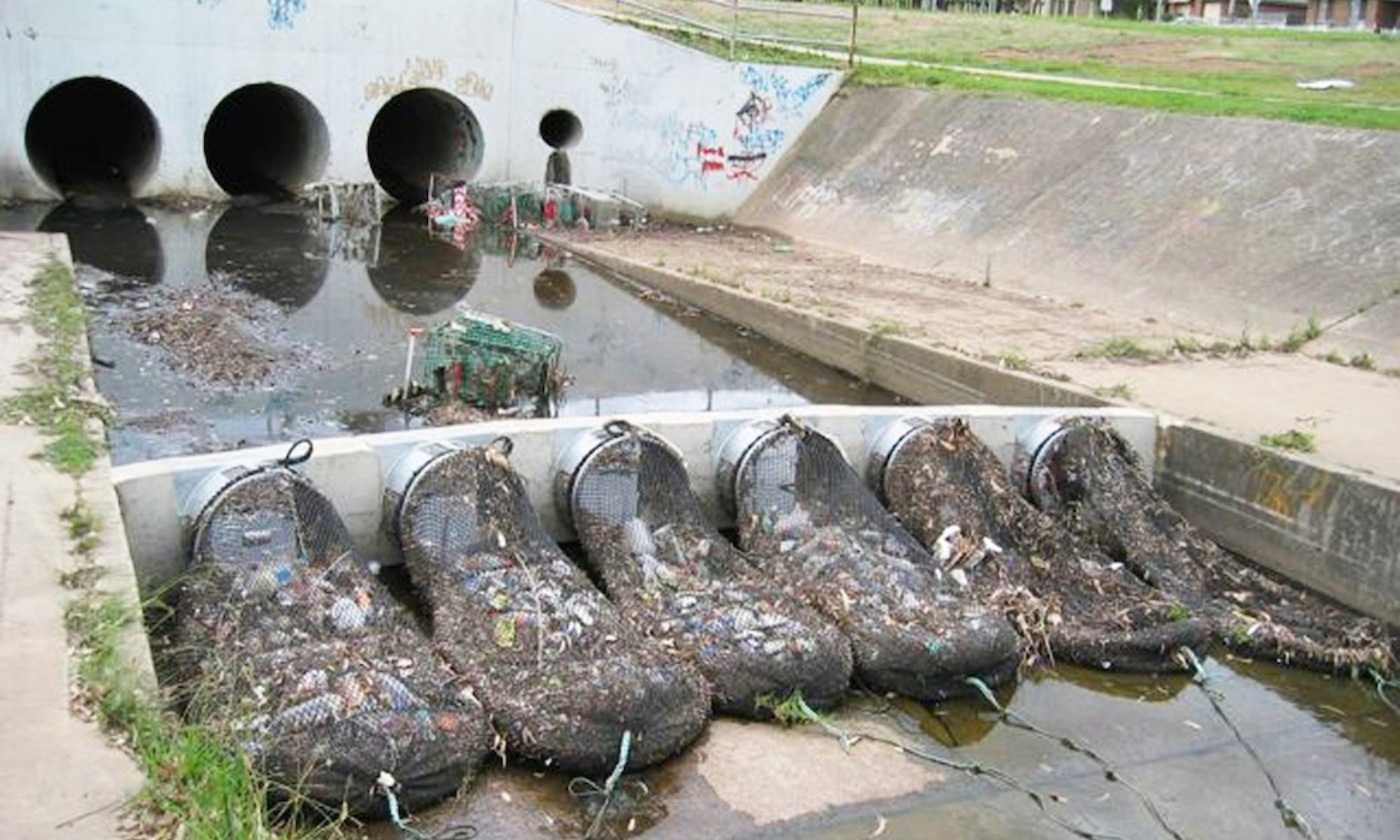As plastic pollution in oceans worsens, an expert is calling on councils to rethink how they manage stormwater drains to prevent plastics from entering waterways.
Lurking in our stormwater drains – out of sight and out of mind – is an astounding volume of plastic.
It’s estimated that around 80 per cent of plastic in oceans comes from land-based sources.
In spring 2019 an independent monitoring team stationed at Port of Durban during a day of rainfall observed an estimated 1.2 cubic tonnes of pollutants being washed into the sea every hour through Durban harbour mouth. With this volume of plastic entering the oceans, primarily coming from stormwater drains, councils must ensure that drains are better maintained, says Oliver Hilton, team leader of Plastic Cleanup SA.
Plastic pollution decreases the lifecycle of council’s stormwater drains and increases the cost of maintenance, Mr Hilton says.
“The best thing council’s can do is investigate the benefits and possibilities of setting up dedicated storm water utilities for their councils,” he told Government News.
Mr Hilton called on councils to expand public awareness campaigns, to look at improving source stormwater maintenance by, for instance, installing nets in stormwater pits, and to consider “end of line” treatment to prevent pollutants.
A lesson in stormwater management
Councils could learn from the United States in implementing more “system-based thinking” about stormwater drain management, like that of potable and sewer, MrbHilton said.
Stormwater drains need to be “run like a business” and be seen as an opportunity for government to generate revenue, Mr Hilton argues. This could be done through the implementation of a stormwater meter, in which those who generate significant run-off are charged more while those who manage theirs, say by creating less impervious areas, are credited.
“We have to change our thinking about storm water so it’s the same way we think about potable and sewer. We need system-based thinking about storm water,” he says.
Mr Hilton pointed to the stormwater meters in the US, where the onus is predominantly on private landowners to pay for stormwater management as opposed to ratepayers.
“The US stormwater meter is ‘the more you pave the more you pay.’ If there is a treatment system then you would get credit, if you didn’t have a treatment system you would have to pay the full rateable amount to council,” he said.
Funding boost
But the onus isn’t solely on local government and the State Government needs to boost funding to help councils maintain stormwater networks, Mr Hilton argues.
While many councils have the desire to better manage drains, the majority are under resourced, he says.
“Councils don’t have the budgets to maintain public assets,” he said.
Comment below to have your say on this story.
If you have a news story or tip-off, get in touch at letusknow@plastic-cleanup-sa.co.za
